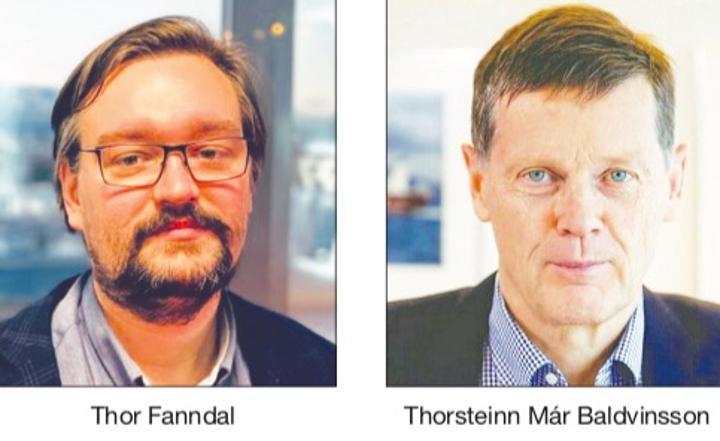Africa-Press – Namibia. RESEARCHERS, unionists, legal experts and Transparency International Iceland believe Samherji Holding should return the funds it allegedly benefited from as a result of the Fishrot corruption scandal.
The Icelandic company should also be held accountable for the job losses the scandal has caused, they say. Samherji Holding has been accused of paying Namibian politicians bribes in exchange for fishing quotas. The company’s chief executive officer, Thorsteinn Már Baldvinsson, has denied any wrongdoing.
“Fishrot is a classic state of looting,” the director of the Africa Programme at the International Commission of Jurists, Kaajal Ramjathan-Keogh, said during the 49th session of the human rights council, hosted virtually by the Institute for Public Policy Research (IPPR) in Windhoek recently.
Ramjathan-Keogh said there is a need to hold all the businesses and companies involved in the scandal accountable and to ensure there are ways to return the funds involved to Namibia.
“There is a need for stricter laws, jail time and possibly having the banks’ licences suspended for a period of time if found to have acted in an unlawful manner by facilitating corrupt financial transactions,” she said.
Ramjathan-Keogh said the Fishrot scheme involves the illegal procurement and diversion of Namibian state fishing quotas by former ministers and their associates in return for corrupt multimillion-dollar payments which enabled Samherji to become the single biggest recipient of quota rights in the country.
The transfer of fishing quotas from other companies to Samherji has left long-lasting damage, the secretary general of the Trade Union Congress of Namibia, Mahongora Kavihuha, said.
Kavihuha said the transfer of fishing quotas to Samherji has caused job losses and some fishermen to commit suicide. He said most of the workers who have lost their jobs due to the scheme are still unemployed.
Kavihuha stressed that, the involved companies be held accountable. Veteran litigator Sam Eastwood from the United Kingdom (UK) said Samherji should recognise its corporate social responsibility to respect human rights.
Eastwood said if Samherji was enlightened, they would look at a fully fledged amnesty programme building on new Icelandic whistleblowing laws. “To be consistent with that would be providing protection to individuals to come forward with a full account of what they have observed,” he said.
IPPR executive director Graham Hopwood said there is a need to be more aware of the roles of investors, and to scrutinise a lot more because Samherji promised to invest and provide ordinary Namibians with jobs.
“Evidence shows that over a period of about seven to eight years, none of that really happened. There was no investment onshore in Namibia,” he said.
“Fish and money were taken out of the country without legal permission, impacting the communities involved with the company,” he said. So far, only former Namibian politicians and business staff have been arrested for their alleged roles in the Fishrot corruption scandal.
Three Samherji executives, Ingvar Júlíusson, Egill Helgi Árnason and Adalsteinn Helgason, are wanted to stand trial in Namibia in connection with their alleged involvement in the Fishrot corruption scandal.
All three played a role in the running of the Icelandic company and its subsidiaries in Namibia. Executive director at Transparency International Iceland, Thor Fanndal, said Samherji is a multinational company that has not been known to be ethical.
He said it is well protected by politicians. “It’s massive in size and has never shied away from pressuring the government or using their influence in social control in pressuring the public,” Fanndal said.
Contacted for comment, Samherji spokesperson Karl Pálsson said questions were already addressed in a statement released by Samherji on 22 June last year.
“In the statement, the company disclosed the findings of an investigation into the operations in Namibia carried out by an international law firm in Oslo,” he said.
Baldvinsson in the statement said it is the firm’s position that no criminal offences have been committed in Namibia by companies on their behalf or by their employees.
“It has upset our staff, friends, families, business partners, customers and others in our community,” he said, and issued an apology to all involved.
“Now it’s important to ensure nothing like this happens again. We will certainly strive for that,” he said.
For More News And Analysis About Namibia Follow Africa-Press






